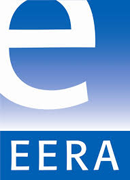ECER 2016
European Educational Research Association (EERA)
22-26 August, 2016 - Dublin, Ireland
The conference theme at ECER 2016 in Dublin is "Leading education: The distinct contributions of educational research and researchers".

Contributions at ECER 2016
Surveying Teacher Educators’ Professional Development Needs in Europe - and beyond
A recent European report (2012) identifies the centrality of teacher educators in school improvement, and emphasises the need for sustained professional learning opportunities to be provided for them. This echoes long held professional opinions about the provision of more coherent and extensive professional development (Lunenberg et al., 2014). It is clear that the variety of types of teacher educators and the diverse contexts in which they work, require tailored paths for such development. Whilst some European nations have developed relevant learning provision, in general we still need further knowledge about exactly what these development paths might be.
This symposium reports on a large-scale survey of teacher educators’ professional development initiated by InFo-TED, a pan-European group, aiming to promote teacher educators' learning. Drawing on previous research, the group designed a survey tool to be deployed at scale across seven countries, intending that the results could then be used both to analyse specific national and pan-European trends.
The research questions in the resulting questionnaire were (i) How do teacher educators perceive their professionalism and their learning? (ii) What are the skills teacher educators need to possess in order to perform their multiple tasks? (iii) What are the professional development needs of teacher educators throughout their careers? (iv)What are the commonalities and differences between the participating countries in terms of teacher educators’ professional learning contexts and personal learning needs?
Implemented in 2015, the survey gathered responses from over 700 Higher Education-based teacher educators. Analysis of this large scale database is still in the early stages, but initial results indicates some interesting pan-European findings (Czerniawski et al., 2015).Here, however, we focus on analysing and presenting the nationally-specific data for research questions 1 -3 from each of three European countries – Ireland, Norway and England – and also from Israel, where, uniquely, the Mofet Institute has led systematic professional development programmes.
Each paper will present the issues about professional development emerging from these analyses. For example, in many countries provision for research development is a major issue, but teacher educators in Ireland and England also request forms of professional development to help them negotiate the fast changing contexts and roles in pre-service work. In Israel, as a result of the increasing ‘academicisation’ of teacher education, many teacher educators request professional development in academic-related rather than education-specific areas. In Norway, as in Ireland, changes to move all pre-service work further towards M level have undoubtedly resulted in new roles for teacher educators, bringing new professional development needs.
This symposium aims to identify valuable and new directions for the design of teacher educators’ professional learning in both national and pan-European contexts. Each of the papers is designed for final publication in academic journals or a book.
Presentations
- The professional developmental needs of higher education-based teacher educators: an international comparative needs analysis (PDF)
- The Israeli case (PDF)
- Being a teacher educator in Ireland (PDF)
Contributors
Paul Conway, University of Limerick, Ireland
Gerry Czerniawski, University of East London, England
Michal Golan, The MOFET Institute, Israel
Ainat Guberman, The MOFET Institute, Israel
Ann MacPhail, University of Limerick, Ireland
Jean Murray, University of East London, England
Mary O'Sullivan, University of Limerick, Ireland
Kari Smith, Norwegian University of Science and Technology, Norway
Marit Ulvik, University of Bergen, Norway

